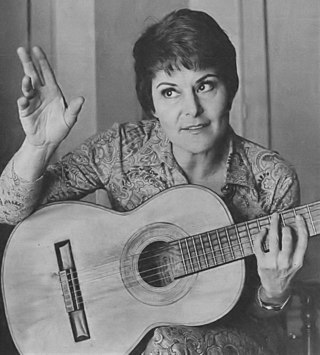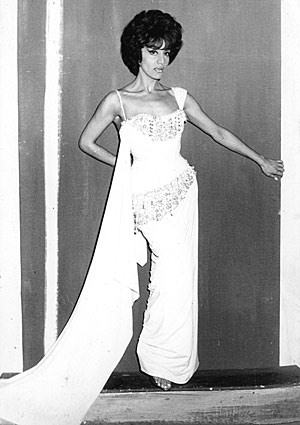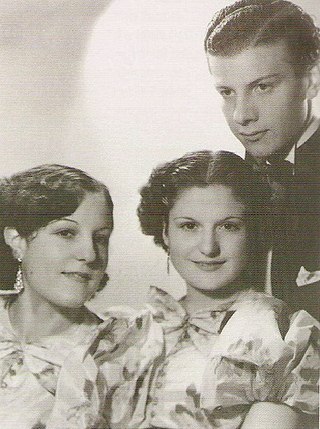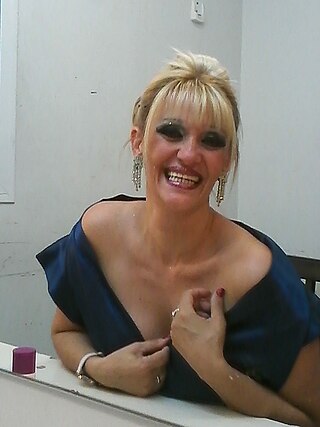
Carlos Gardel was a French-born Argentine singer, songwriter, composer and actor, and the most prominent figure in the history of tango. He was one of the most influential interpreters of world popular music in the first half of the 20th century. Gardel is the most famous popular tango singer of all time and is recognized throughout the world. He was notable for his baritone voice and the dramatic phrasing of his lyrics. Together with lyricist and long-time collaborator Alfredo Le Pera, Gardel wrote several classic tangos.

Tango is a partner dance and social dance that originated in the 1880s along the Río de la Plata, the natural border between Argentina and Uruguay. The tango was born in the impoverished port areas of these countries from a combination of Rioplatense Candombe celebrations, Spanish-Cuban Habanera, and Argentine Milonga. It was frequently practiced in the brothels and bars of ports, where business owners employed bands to entertain their patrons. It then spread to the rest of the world. Many variations of this dance currently exist around the world.

Tango is a style of music in 2
4 or 4
4 time that originated among European and African immigrant populations of Argentina and Uruguay. It is traditionally played on a solo guitar, guitar duo, or an ensemble, known as the orquesta típica, which includes at least two violins, flute, piano, double bass, and at least two bandoneóns. Sometimes guitars and a clarinet join the ensemble. Tango may be purely instrumental or may include a vocalist. Tango music and dance have become popular throughout the world.

Argentine tango is a musical genre and accompanying social dance originating at the end of the 19th century in the suburbs of Buenos Aires. It typically has a 2
4 or 4
4 rhythmic time signature, and two or three parts repeating in patterns such as ABAB or ABCAC. Its lyrics are marked by nostalgia, sadness, and laments for lost love. The typical orchestra has several melodic instruments and is given a distinctive air by the bandoneon. It has continued to grow in popularity and spread internationally, adding modern elements without replacing the older ones. Among its leading figures are the singer and songwriter Carlos Gardel and composers/performers Francisco Canaro, Juan D'Arienzo, Carlos Di Sarli, Osvaldo Pugliese, and Ástor Piazzolla.

María Cristina Lancelotti, better known by her stage name Valeria Lynch, is an Argentine singer and actress. Named by the New York Times as one of the 5 best voices on the planet.

Eladia Blázquez was an Argentine tango singer and composer. Born in Gerli, Buenos Aires Province, El corazón al sur is considered her most popular tango.

Alberto Castillo was a prominent Argentine tango singer and actor. He was born Alberto Salvador De Lucca in the Mataderos district of Buenos Aires, the son of Italian immigrants Salvatore De Luca and Lucia De Paola. Castillo made his professional debut in the 1930s and began a successful recording career in 1941; his first hit was his cover of the Alfredo Pelala tune “Recuerdo”.

Adriana Varela is an Argentine tango singer, with a successful career that encompasses many records, as well as minor movie roles.
Ignacio Varchausky is a double bass player, music producer and founder of Orquesta El Arranque (1996). He is also the creator and artistic director of Orquesta Escuela de Tango Emilio Balcarce.
Orquesta El Arranque is an Argentine tango orchestra formed in Buenos Aires in 1996.
Lidia is a feminine given name. It is the Greek, Italian, Polish, Romanian, and Spanish transcription of the name Lydia.

Sissy Handler is an Austrian singer, songwriter, vocal coach and producer. She is best known under her stage name of MisSiss. Her music is mainly pop, soul, R&B and gospel.

12 Tangos: Adios Buenos Aires is a German documentary film from the director and producer Arne Birkenstock, filmed in 2004 in the Argentinean capital Buenos Aires. The film music was arranged and composed by the guitarist and composer Luis Borda who gathered the most important Argentinean Tango musicians for the produccion of this movie. The movie was produced by the Cologne production companies Fruitmarket Kultur und Medien and Tradewind Picturesin colobaration with ZDF and ARTE. The development of the script was aided by the European Media-Programm. The movie was released by the Kinostar GmbH and sold worldwide by Medialuna Entertainment. As co-producers Dr. Peter Bach und Hans Georg Haakshorst supported its production.

Teresa Adelina Sellarés, best known as Teresa Parodi, is an Argentine singer and songwriter. She held the inaugural post of Minister of Culture of Argentina from May 6, 2014, to December 9, 2015. She was a deputy to the Mercosur Parliament (Parlasur) representing the nationwide district of Argentina from December 10, 2015, to October 6, 2016. She was elected on the Front for Victory ticket in the 2015 election.

Alba Solís was an Argentine singer, actress and vedette. Her style was characterized by singing tangos in a dramatic manner. She was born in the Floresta area of Buenos Aires to Italian parents, Oreste Juan Guillermo Lamberti and Herminia Trapanese.

María Nieves Rego is an Argentine tango dancer and choreographer who starred with her long time dance partner Juan Carlos Copes in the 1983 musical Tango Argentino.

Sabina Olmos (1913–1999) pseudonym of Rosa Herminia Gómez Ramos was an Argentine film actress of the Golden Age of Argentine Cinema (1940–1960).

Guillermina Moragues, better known as Myrna Mores, was an Argentine actress and singer.

Silvia Gabriela Garro, known as Silvia Gabriela is an Argentine tango singer based in Australia. She has received several awards throughout her career, most notably the Golden Condor at the International Tango Festival (2008).















